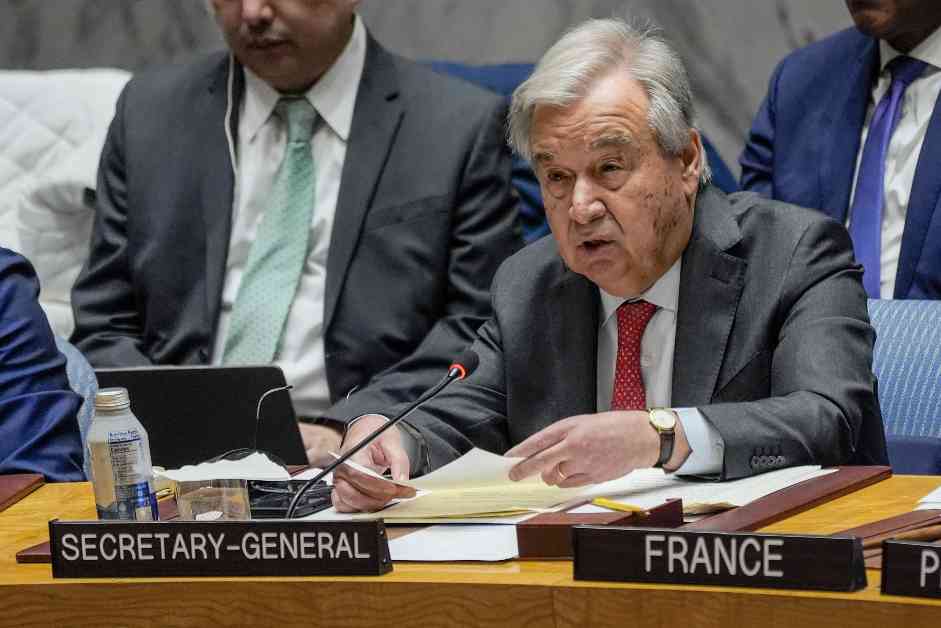The United Nations General Assembly is currently underway, bringing together world leaders in the midst of growing concerns about global challenges and the need for international cooperation. The Secretary-General, Antonio Guterres, has emphasized the urgency of modernizing international institutions to address the rapidly changing world and the various threats it faces. The two-day summit leading up to the high-level meeting has focused on a blueprint for addressing global issues ranging from conflicts to climate change and the impact of new technologies like artificial intelligence.
Despite the ambitious goals set forth in the summit’s outcome document, known as the “Pact of the Future,” there are doubts about whether world leaders will be able to move beyond rhetoric to meaningful action. Agnès Callamard of Amnesty International has urged leaders to show imagination and conviction in forging greater cooperation, warning of dire consequences if they fail to seize this opportunity.
As more than 130 presidents, prime ministers, and monarchs prepare to address the General Assembly, the spotlight is on ongoing conflicts in Gaza, Ukraine, and Sudan, as well as the escalating tensions in the Middle East. President Biden’s appearance at the assembly is expected to be a significant moment on the world stage, with a focus on ending the scourge of war and bringing hope to conflict-affected populations around the globe.
The Security Council, faced with a record number of ongoing conflicts and escalating civilian casualties, is under scrutiny for its failure to maintain international peace and security. Divisions among its veto-wielding permanent members, particularly over conflicts like Ukraine, have hindered its effectiveness in addressing global challenges. The upcoming speeches by leaders like Volodymyr Zelensky, Mahmoud Abbas, and Benjamin Netanyahu are expected to shed light on these pressing issues.
Slovenia’s high-level meeting on “Leadership for Peace” aims to address the urgent need to rebuild trust and secure the future in a world that is becoming increasingly unstable and less peaceful. The Slovenian ambassador highlighted the unprecedented number of people displaced by conflict and the erosion of respect for international rules, calling for a renewed commitment to peace and security.
While world leaders gather at the United Nations to discuss these critical issues, the Secretary-General’s warnings about the multiplication of conflicts and the sense of impunity among powerful entities serve as a stark reminder of the challenges ahead. The need for concrete action to address these global threats has never been more pressing, and the success of the General Assembly will ultimately depend on the commitment of member nations to work together towards a more peaceful and sustainable future.


